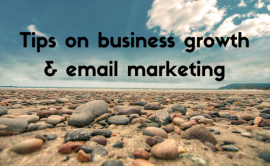
I mentioned how much fun learning can be in a recent post about the importance of CPD for translators and interpreters. Last weekend I spent three fun-filled hours going through Ed Gandia’s B2B Bootcamp, How to Launch a Profitable B2B Writing Business in 10 Weeks or Less.
Those enjoyable hours made me a better businesswoman and will lead to more clients for Lingua Greca Translations. Was it that good, you ask? Read on and find out!
Course details: 3-hour audio, slides from the webinar, workbook and 4 handouts.
Short review
The course is designed for writers, copywriters and editors. Ed talks about the corporate writing market and how to land clients there. Even though he doesn’t talk specifically about target markets for translators, it’s still worth a listen and a read, and here’s why:
- Many translators are also copywriters and editors. If this is your case, Ed’s tips are for you.
- Even if you don’t moonlight as a writer, writing professionals can be part of a translator’s client pool. The course gives you great insight into the corporate writing market, i.e. what documents are in demand and in turn what you’ll get to translate if you work with writing professionals.
- Ed gives tips on how to find and contact leads in the corporate writing world. These are the same people translators communicate and work with depending on their specializations, for example, marketing and communications directors at a company.
Takeaways, including great tips & ideas for translators
“Trading Up” Technique: don’t start with the big clients; take baby steps, stair-step your way to success and you’ll get to the ‘big fish’ eventually.
Some benefits of corporate clients:
- Prone to outsourcing content
- Higher chance of repeat business
- Bigger budgets = higher fees
- More likely to get the value of great content
- Prestige = greater credibility and better portfolio samples
You need to define:
What you do; For whom; Why you’re different; Why that difference matters
What makes you a better choice than other linguists in your field(s)? Describe what makes you different based on:
Background, Education, Experience, Accomplishments, Awards, Certifications, Hobbies.
Is there something about your work that’s better than the standard services offered in your language pairs and specializations? Write down your ideas and think about why these differentiators would matter to a potential client. How can you express this in a way so clients recognize the benefits you provide?
You have to position yourself for success by clearly communicating what sets you apart from the rest. You have to show the benefits of your services.
Focus on milestones, not the summit
This means if you specialize in software translation, don’t try to land IBM as a client in your first few years in business; start with smaller IT companies.
It’s okay to start out as a generalist. As your business develops, you can look for patterns and preferences and specialize along the way (which leads to faster work and higher rates).
Writers (and translators too) need a website (WordPress rocks!). Ed suggests having the following pages:
Home; Why me; Services; Samples (for writers of course, but works for translators too); Bio; Testimonials; Contact
Assembling your list of potential prospects
Ideal job position titles to look for:
- Marketing managers or staff
- Marcom (marketing communications) directors
- Public relations directors & managers
- Product managers
- President/Owner (smaller companies)
Handout #3 of the bootcamp included three sample email scripts, which were brilliant! The first is an email for a potential referral source, the second and third are basically cold emails, yet Ed’s scripts are nothing but cold. They come across as warm, professional and polite and make you want to hire him right away, because he makes sure that those emails are:
- Short, relevant and to the point
- Personalized
- Focused on getting a response
Another important reason why his email scripts are so effective is that they lead with a meaningful connection. Are you wondering what exactly this is? It’s something you’ve noticed about your potential lead and what they’re doing lately, or have recently done.
Examples:
- A new marketing director or VP has just been hired
- A new product or service is coming out
- The company is expanding into new markets (perfect opportunity for translators!)
- There are new initiatives within the organization
- Your prospect is organizing or attending an upcoming industry event
Each email must be personally handcrafted and written for one person only. The goal of a warm email is NOT to land a client. The goal is to start a conversation!
Warm Email Prospecting Template
SUBJECT LINE: [Meaningful Connection]
EMAIL BODY:
[Meaningful Connection]
[Value Statement]
[Credibility URL]
A link to your “About Me” page, samples, testimonials
[Soft Invitation to Connect]
Keep it low-key. “Should we connect?” or maybe, “Would it make sense to schedule a brief call soon?”
[Email Signature]
Keep your email short and to the point: 125 words or less!
There’s so much food for thought, I can’t wait to apply Ed’s tips! What about you, dear readers? Have you heard of Ed Gandia, and his podcasts and courses? Given his popularity in translation forums you’ve probably read or listened to him. We’d love to know what you think and how he’s helped your business. Leave a comment and let us know below!
Header image credit: Stokpic
Header image edited with Canva





Wow, thanks so much for the detailed write up and the kudos! Glad to hear my ideas and advice are resonating with you, Catherine.
My pleasure Ed and thanks for stopping by 🙂